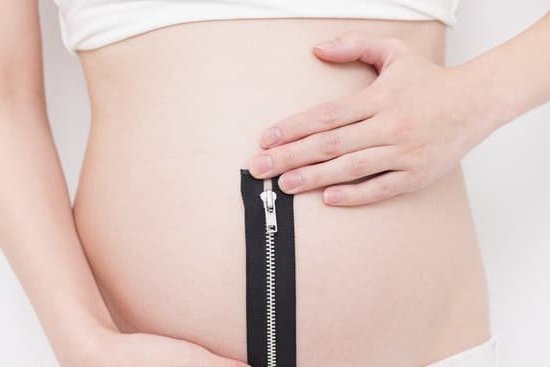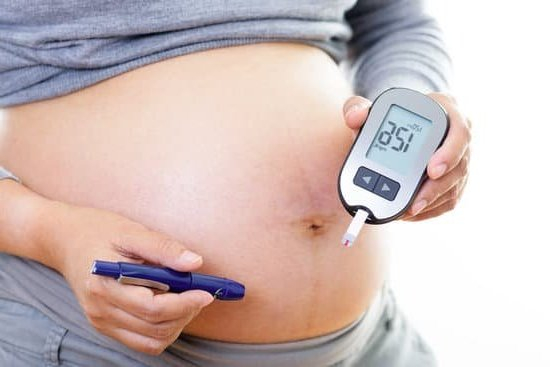Are you wondering how many weeks pregnancy test should be taken for accurate results? Understanding the importance of timing in pregnancy testing is crucial for obtaining reliable and precise results. Whether you’re hoping to conceive or are concerned about a possible pregnancy, knowing when and how to take a pregnancy test is essential.
Timing plays a vital role in the accuracy of pregnancy testing. In this article, we will explore the science behind pregnancy tests, the importance of knowing how many weeks pregnant you are, the different types of pregnancy tests available, and the factors that can affect test results. By understanding these key aspects, you can make informed decisions about when to take a pregnancy test and what to expect from the results.
Pregnancy testing has become more accessible with home testing kits readily available in pharmacies and online. However, it’s important to understand how these tests work and when it’s best to use them for reliable results. Knowing how many weeks pregnant you are also significantly impacts testing accuracy and the interpretation of test results. By gaining insight into these factors, individuals can empower themselves with the knowledge needed to navigate the process of pregnancy testing effectively.
The Science Behind Pregnancy Tests
Pregnancy tests work by detecting the presence of a hormone called human chorionic gonadotropin (hCG) in your urine or blood. This hormone is produced when a fertilized egg implants in the uterus, typically about six days after conception. Home pregnancy tests are designed to be used about one week after a missed period, which is usually around four weeks after the last menstrual period. However, some tests claim to be able to detect pregnancy even before your missed period.
The accuracy of a pregnancy test can depend on how many weeks pregnant you are at the time of testing. Research has shown that home pregnancy tests can accurately detect hCG levels in 60% of women on the day of their missed period, and up to 99% accuracy within one week after a missed period.
If you take a pregnancy test too early, before implantation has occurred and hCG levels have had time to rise, it may result in a false negative.
If you receive a positive result from a home pregnancy test, it is important to schedule an appointment with your healthcare provider for confirmation and to determine how many weeks pregnant you are. They will likely perform another pregnancy test as well as an ultrasound to estimate gestational age based on the size of the fetus. It is crucial to seek professional guidance throughout your pregnancy journey for accurate confirmation and proper prenatal care.
| Accuracy of Home Pregnancy Tests | Timing of Testing |
|---|---|
| 60% accuracy on day of missed period | About four weeks after last menstrual period |
| Up to 99% accuracy within one week after missed period | About five weeks after last menstrual period |
Importance of Knowing How Many Weeks Pregnant
Pregnancy testing is commonly used to confirm the presence of pregnancy hormones in a woman’s body. However, the accuracy of the test results can be highly affected by how many weeks pregnant a woman is at the time of testing. Understanding gestational age is crucial in interpreting the results of a pregnancy test.
Gestational age refers to how far along a pregnancy is, usually measured in weeks and days from the first day of the woman’s last menstrual period. Knowing how many weeks pregnant a woman is can greatly affect the accuracy of a pregnancy test result. This is because the levels of hCG (human chorionic gonadotropin), the hormone detected by pregnancy tests, increase rapidly during early pregnancy and then level off as the pregnancy progresses.
In general, it is recommended to take a pregnancy test about one week after a missed period for more accurate results. Testing too early can result in false negatives because hCG levels may not be high enough to be detected yet. On the other hand, testing too late can lead to false positives due to decreasing hCG levels as the pregnancy advances. Understanding how many weeks pregnant is crucial in ensuring that accurate results are obtained from a pregnancy test.
| Weeks Pregnant | Accuracy of Test Results |
|---|---|
| 0-1 week | Likely inaccurate due to low hCG levels |
| 2-3 weeks | Possible detection but still early for accurate results |
| 4+ weeks | Highly accurate for detecting pregnancy |
Understanding the Different Types of Pregnancy Tests
When it comes to pregnancy testing, there are two main options available: home testing and medical testing. Both types of tests serve the same purpose of detecting pregnancy, but there are some key differences between the two.
Home pregnancy tests are easily accessible over-the-counter kits that can be used in the privacy of your own home. These tests typically work by detecting the presence of a hormone called human chorionic gonadotropin (hCG) in urine. Home pregnancy tests are convenient and easy to use, with results available within minutes. However, it’s important to follow the instructions carefully and to test at the right time for accurate results.
On the other hand, medical testing for pregnancy is usually done at a doctor’s office or clinic. This type of test may involve a blood test or a urine test similar to home testing, but it is typically more accurate and reliable. Medical professionals can also provide counseling and support during the testing process and can offer further guidance based on the results.
Factors to Consider When Choosing Between Home Testing and Medical Testing
- Convenience: Home testing is convenient and can be done privately at any time, while medical testing may require an appointment.
- Accuracy: Medical testing is generally more accurate than home testing, especially in early pregnancy.
- Support: Medical professionals can offer counseling and support during the testing process.
Ultimately, whether you choose home testing or medical testing for pregnancy, it’s important to consider your individual circumstances and preferences. It’s also important to seek professional guidance if you have any concerns about the results or timing of your test.
Overall, understanding the different types of pregnancy tests can help individuals make informed decisions about how they want to proceed with their pregnancy confirmation process. Whether opting for a home test or seeking medical assistance, it’s essential to consider factors such as convenience, accuracy, and support when making this important decision.
Careful consideration will ensure that individuals receive accurate results and appropriate guidance regardless of which method they choose for their pregnancy test.
Factors That Affect Pregnancy Test Results
Pregnancy test results can be affected by a variety of factors including timing, hormonal levels, and testing methods. Understanding these factors is crucial to obtaining accurate and reliable results when trying to confirm a pregnancy.
Timing
The timing of a pregnancy test can greatly impact its accuracy. While many home pregnancy tests claim they can detect pregnancy as early as the first day of a missed period, it is generally recommended to wait at least one week after a missed period for the most accurate results. Testing too early may result in a false negative due to the low levels of hCG (human chorionic gonadotropin) in the body during the very early stages of pregnancy.
Hormonal Levels
Hormonal levels play a significant role in influencing the accuracy of pregnancy test results. HCG, also known as the “pregnancy hormone,” is produced once a fertilized egg attaches to the uterine lining. The levels of hCG increase rapidly in early pregnancy, doubling every 48 to 72 hours. It’s essential to consider these hormonal changes when determining how far along in the pregnancy you may be.
Testing Methods
Different testing methods may also affect pregnancy test results. Home pregnancy tests typically involve urinating on a stick or dipping it into urine, while medical professionals often perform blood tests for hCG levels. Blood tests are considered more sensitive and can detect lower levels of hCG than urine tests, providing earlier and more accurate results.
Being mindful of these factors that affect pregnancy test results is essential for accurately confirming a pregnancy and understanding how far along you may be in your gestational age. By considering timing, hormonal levels, and testing methods, individuals can make informed decisions about when and how to take a pregnancy test for the most reliable results.
The Best Time to Take a Pregnancy Test
When it comes to taking a pregnancy test, timing is crucial in order to get accurate results. Understanding when to take a pregnancy test can be the difference between a false negative or positive result. In this section, we will delve into the best time to take a pregnancy test and when to expect accurate results.
Understanding the Menstrual Cycle and Ovulation
The timing of taking a pregnancy test is closely related to the menstrual cycle and ovulation. Most women have a regular menstrual cycle, which typically lasts 28 days.
The best time to take a pregnancy test is after you have missed your period, as this increases the accuracy of the results. Ovulation occurs around two weeks before your next expected period, so waiting until after you have missed your period allows for enough time for hCG levels to increase if you are pregnant.
The Accuracy of Home Pregnancy Tests
Home pregnancy tests are designed to detect hCG levels in urine, which typically increase as the pregnancy progresses. However, taking a test too early may result in a false negative, as hCG levels may not be high enough to be detected. It is recommended that you wait at least one week after your missed period before taking a home pregnancy test for more accurate results.
Medical Testing and Confirmation
If you suspect that you might be pregnant but receive a negative result on a home pregnancy test, it is advisable to consult with a healthcare professional. They can conduct further testing and provide guidance on how many weeks pregnant you may be, based on symptoms and other factors.
Medical testing such as blood tests or ultrasound can also provide more accurate confirmation of pregnancy and gestational age. Seeking professional guidance ensures that you receive accurate information about your pregnancy status and gestational age.
How Many Weeks Pregnancy Test
Pregnancy tests are a crucial step in confirming whether or not you are pregnant. However, it is also important to understand how many weeks pregnant you are when taking the test. The number of weeks pregnant can greatly impact the accuracy of the pregnancy test results and provide valuable information about gestational age.
When interpreting pregnancy test results, it is important to understand that most home pregnancy tests are designed to detect the presence of the hormone hCG (human chorionic gonadotropin) in urine. This hormone is only produced once a fertilized egg has implanted in the uterus, which typically occurs about 6-12 days after ovulation. Therefore, taking a pregnancy test too early can result in a false negative.
To better understand how many weeks pregnant you may be when taking a pregnancy test, consider the following factors:
- Keep track of your menstrual cycle: Knowing when you ovulate and when your last period started can help estimate how far along you may be.
- Pay attention to early pregnancy symptoms: Symptoms such as breast tenderness, nausea, and fatigue can provide clues about how many weeks pregnant you may be.
- Consult with a healthcare professional: If you are unsure about how many weeks pregnant you may be, seek guidance from a doctor or midwife who can help provide support and accurate information.
Understanding how many weeks pregnant you are when taking a pregnancy test is essential for accurately interpreting the results and understanding gestational age. If there is any uncertainty about timing or results, it is important to seek professional guidance for further support and confirmation of your pregnancy.
Conclusion
In conclusion, understanding the importance of seeking professional guidance and support for pregnancy testing and confirmation is crucial for ensuring accurate results and receiving the necessary care. The timing of a pregnancy test can significantly impact its accuracy, which is why it is essential to seek medical advice on when to take the test.
Additionally, knowing how many weeks pregnant you are can also affect the reliability of the results. Consulting with a healthcare provider can provide valuable information on when to take a pregnancy test based on individual circumstances, hormonal levels, and gestational age.
While home pregnancy tests are convenient and accessible, they may not always provide accurate results if not used correctly or at the right time. Seeking medical testing from a healthcare professional can ensure more reliable results and offer comprehensive support throughout the process. Factors such as hormonal levels and testing methods can also influence the accuracy of a pregnancy test, making it important to have professional guidance.
It is important to emphasize that professional guidance and support are essential for interpreting results accurately and understanding gestational age. Healthcare providers can offer personalized advice based on individual situations, offering emotional support and practical guidance for those who receive positive results. Ultimately, seeking professional assistance for pregnancy testing and confirmation ensures that individuals receive the best possible care during this critical time in their lives.
Frequently Asked Questions
How Many Weeks Pregnant Do You Test Positive?
Most pregnancy tests can detect the hCG hormone in urine around 4-5 weeks into the pregnancy, which is about 2 weeks after a missed period. However, some more sensitive tests may be able to detect it as early as 3 weeks.
How Many Weeks Can a Pregnancy Test Tell You?
A pregnancy test can typically tell you if you are pregnant as early as 1-2 weeks after conception. This is usually around the time of your missed period. However, for the most accurate result, it is recommended to wait until at least a week after your missed period.
What Does 3 Weeks Mean on Clearblue?
“3 Weeks” on a Clearblue pregnancy test refers to how many weeks it has been since conception. This information can help estimate how far along in the pregnancy you are, as pregnancy is typically calculated from the first day of your last menstrual period (LMP).

Welcome to my fertility blog. This is a space where I will be sharing my experiences as I navigate through the world of fertility treatments, as well as provide information and resources about fertility and pregnancy.





